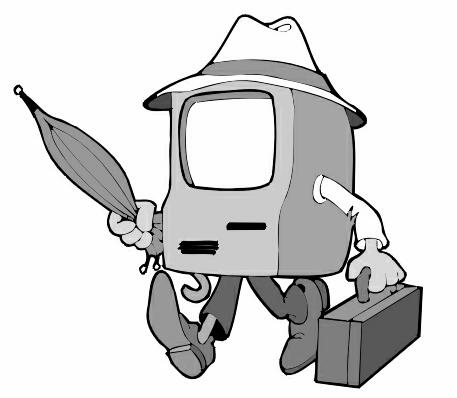
H. James Boynton
Computer Consultant
994 Willowood Lane
Dunedin, Fl 34698
727-734-8661
Y2K in the Computer Jungle This is an article that was printed in the Dunedin Times in November 1999
The best I can make out of this entire
Y2K calamity, hazard, or hoax, is that it is probably somewhere in between everything that you hear. And I do not think that we will know the extent of the problem until it gets here. The Y2K problem stems from computer systems that only record the last two digits of the year instead of all four digits. So on January 1 of the year 2000, some computers may not know if it is 1900 or 2000. As we all know when a computer gets confused it does strange things, perhaps even going on a sit-down strike. Most of the new computers sold within the last few years are Y2K compliant, and that means that they should have no problem with the new date.There also can be problems in the software that will be brought on by the date change, and millions of dollars are being spent to go through old computer codes to correct for the problems that could be brought on by the program misinterpreting the date. So yes Y2K is a combination of hardware and software problems.
At the present time there are a number of programs on the market that will test for Y2K hardware problems and then try to correct those problems with a software patch. The easiest way that I can think of to explain it is that the programs change the date on the computer to see how it reacts. I have tested a number of the older computers (mostly 386s and older 486s) that I work with and they all failed. The CMOS (Complementary Metal-Oxide Semiconductor) will think that it is 1900 instead of 2000. The CMOS is that small battery-operated memory chip in the computer that keeps track of the real time and the information needed to make the computer work. To fix this Y2K problem, the software tells the computer to add 100 years to the date. All right maybe it is a little more sophisticated than that, but it is an understandable explanation. This should work for most computers. At least they are supposed to be able to boot up, which is a good start if you listen to some of the forecasters of doom. This sounds like and inexpensive solution, and it is probably too good to be true in all cases. As we have all learned the hard way there is no such thing as never or always when dealing with computers.
One of the obvious problems with the software patch approach is that some of the older software programs may go back to the CMOS to find the date, and this date has not been corrected. To solve this problem the computer may need a hardware fix. This hardware solution is available in the form of an expansion card that can be added to the computer. This card is supposed to take over and keep the real time for the computer. This should allow the older software to find the correct date, which will allow it to function.
I have tried both software and hardware fixes and the both seem to work, based on failing the Y2K test before and passing the test after installation. If this is the case, and all things being equal, the software fix will be the least expensive. The software will cost between $20 and $40, while the hardware fix will cost between $50 and $100, but it is probably more reliable.
This certainly does appear to be a very easy solution to the Y2K problem. I am sure that no one will have any difficulty with the installation of either the software or hardware. Except that a number of the computers that will have Y2K problems, do not have CD-ROM players, and I have not found the Y2K software available on diskettes. I had to make my own. Also a problem will occur with the hardware fix for the older IBM computer with Micro Channel Architecture, as I have not found a card that claims to fit the Micro Channel Architecture.
In our modern world computers are not the only things that use computer chips. Every computer chip in use may have the ability to keep track of the year. While many do not, some devices that do not even use the year may contain computer chips that do. This is because it is sometimes easier and cheaper to design a chip that will do many functions even if the device that this chip will be used in does not use that function. This includes TVs, VCRs, coffee makers, microwaves, thermostats, clocks, and even automobiles. Some of these chips may have a problem with the Y2K. Come the morning of January 1st of next year, it could be very interesting to move around the house and see what works and does not. I wonder if my digital watch is going to work or not.
Although these are potential problems, I do not think that they will materialize, but better to be prepared than caught unaware. I for one have tested all of my computers, and installed software on those that did not pass the tests. I would recommend that to everyone with a computer out there. It might even be a very good idea to have all of your data backed up.
Just be warned Y2K is coming in a couple of months.
Return to Boynton Home PageCLICK
Return to Boynton Resume PageCLICK